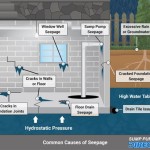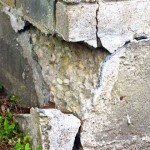Interlocking Basement Floor Tiles: Essential Aspects for Waterproofing
Interlocking basement floor tiles offer an efficient solution for creating a waterproof and durable flooring system in basements and other moisture-prone areas. Their interlocking design and waterproof materials ensure that water and moisture remain sealed out, protecting the underlying subfloor and preventing damage to your belongings.
When selecting interlocking basement floor tiles, it's crucial to consider several essential aspects:
Material Composition
Basement floor tiles are typically made from materials such as vinyl, polyethylene, or rubber. Each material has unique properties that affect its durability, water resistance, and ease of installation.
- Vinyl tiles: Durable, easy to install, and offer excellent water resistance.
- Polyethylene tiles: Lightweight, flexible, and resistant to moisture, making them ideal for areas with potential flooding.
- Rubber tiles: Sound-absorbent, durable, and provide excellent slip resistance.
Interlocking Mechanism
The interlocking mechanism is critical for ensuring a waterproof seal between tiles. Tiles with a tongue-and-groove design interlock securely, preventing water from seeping through the gaps.
Water Resistance
Look for tiles with high water resistance ratings. These ratings indicate the tile's ability to withstand standing water and moisture without absorbing it or allowing it to penetrate the underlying floor.
Thickness and Durability
Thicker tiles offer greater durability and are less prone to damage or cracking. Consider the intended use of the area and select tiles that can withstand the expected foot traffic and potential impact.
Installation Subfloor
Before installing interlocking floor tiles, ensure the subfloor is clean, level, and dry. If the subfloor is uneven or damaged, it can affect the tiles' performance and waterproofing capabilities.
Installation Process
Interlocking tiles are relatively easy to install, typically requiring no adhesives or special tools. Follow the manufacturer's instructions carefully to ensure a proper fit and a waterproof seal.
Maintenance and Cleaning
Regular cleaning and maintenance will help prolong the life of your interlocking basement floor tiles. Sweep or vacuum regularly to remove dirt and dust, and use a damp mop to clean spills or stains. Avoid using harsh chemicals or abrasive cleaners that could damage the tiles.
By considering these essential aspects and selecting high-quality interlocking basement floor tiles, you can create a waterproof and durable flooring system that will protect your basement from moisture and water damage, enhance its functionality, and add aesthetic value.

Greatmats Max Tile 12 In W X L Slate Waterproof Interlocking Modular Basement Vinyl Floor Tiles 20 Sq Ft Pack Maxtslt20 The Home

Greatmats Max Tile 12 In W X L Slate Waterproof Interlocking Modular Basement Vinyl Floor Tiles 20 Sq Ft Pack Maxtslt20 The Home

Greatmats Max Tile 12 In W X L Light Oak Waterproof Interlocking Modular Basement Vinyl Floor Tiles 20 Sq Ft Pack Maxtlok20 The Home

Greatmats Max Tile 12 In W X L Slate Waterproof Interlocking Modular Basement Vinyl Floor Tiles 20 Sq Ft Pack Maxtslt20 The Home

Greatmats Max Tile 12 In W X L Slate Waterproof Interlocking Modular Basement Vinyl Floor Tiles 20 Sq Ft Pack Maxtslt20 The Home

Greatmats Max Tile 12 In W X L Slate Waterproof Interlocking Modular Basement Vinyl Floor Tiles 20 Sq Ft Pack Maxtslt20 The Home

Thermaldry Basement Flooring Systems Waterproof

Thermaldry Basement Flooring Systems Waterproof

Basement Subfloor Interlocking Tiles Alternative Underlayment

Greatmats Max Tile 12 In W X L Light Oak Waterproof Interlocking Modular Basement Vinyl Floor Tiles 20 Sq Ft Pack Maxtlok20 The Home
Related Posts







